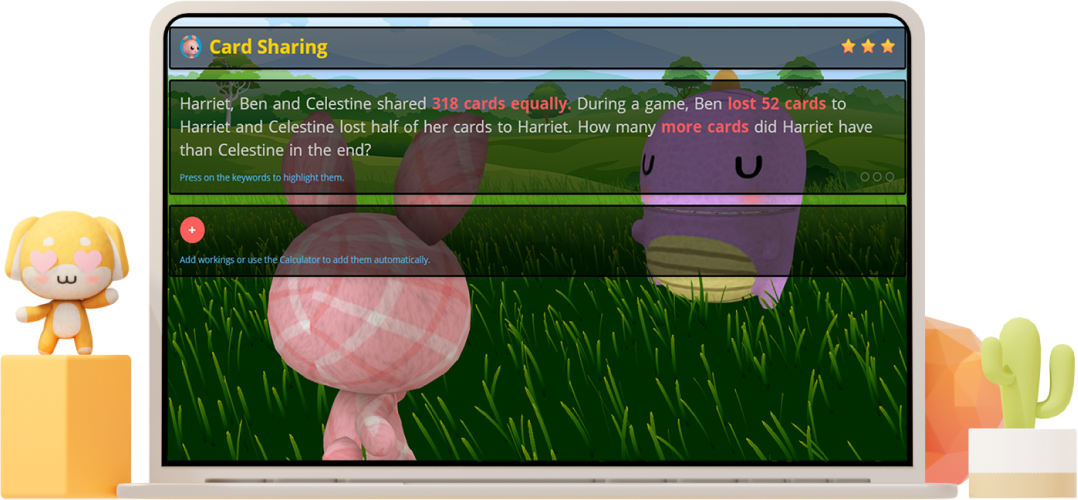Have you wondered what are the good study habits for kids to learn math? In this fast-paced society, everyone’s talking about speed and efficiency. Yet, procrastination is a very real thing, especially for most primary school children considering how young they still are. That explains why some kids choose to wait until the very last minute before they start studying for their math exam. But with less time to study on the class material, it’s easy for children to feel stressed.

Which is why developing good study habits can be your kids’ school lifesaver!
Good study habits are the stepping stones that your child can use to slowly but surely do better in school. While these habits can be taught overnight, it takes much longer for kids to slowly get used to it. The key is to consistently practice these habits so that it becomes second nature for them. In this article, we’ll go through some noteworthy examples of good study habits for children so that they can study math consistently. While it may seem like a small thing to do, if done right, these effective study habits can level up kids’ studying in the long term!
Why is consistency important while studying?

Why should we bother building good study habits in order to be consistent? Because, it’s the best way to ensure your child studies smartly, safely, and effectively. Think of consistency in studying as a foolproof road to success. Children don’t always stick to the same study routine. Sometimes, if they push everything to the last minute, they’ll have to do an intensive study session to understand the course materials in time. And if you’ve gone through intensive studying sessions before, you’d know that cramming is not exactly the most pleasant experience. This doesn’t just apply to primary school students. Even high school and college students can still fall for the same trap. Trying to study everything all at once can be stressful. Not only can it lower the chances for your child to get a good score, they may not have the time to stick the material in their heads long enough to even remember it for the exam. Being consistent allows kids to study smarter, focus on specific goals instead of the bigger picture, and still get good results.
How can your child study consistently?
Studying math on a consistent basis is a much better way to learn math. The question is: how can parents teach kids to study consistently? Well, the team at Practicle advocate spending 15 minutes a day on targeted math practice. Let’s face it, most primary school children have short attention spans. Unless they are enjoying their favourite activity, such as watching television, playing games or scrolling through social media, it’s hard for them to sit still and concentrate on what they are doing for long periods of time. 15 minutes is just the right amount of time for young children to stay focused and have some progress in their math revisions. Breaking your child’s studying into short daily sessions will also make it more manageable for them. This way, they won’t have to cram as many class materials at one sitting and they will have more time to understand and practice math concepts. Let’s learn what we as parents can do to motivate our child to study math a little a day on a consistent basis.
3 good study habits to study math consistently
All right, now we know that it’s important to have your child study consistently to understand math. Getting them started on the habit is the easy part; the challenge will be having them keep doing the habit on their own. Here are 3 good study habits that will help keep your child being consistent while studying math!
1. Make it part of your child’s routine
Studying for 15 minutes every day is an easy amount of time to “squeeze in” at any time of the day. Discuss with your child when this golden period will be and build it into their routine. This will help them form a good habit of revising over time, so they don’t have to do any last minute studying before any math exam. You can also give some control to your child on how they would like to use these 15 minutes to learn. Whether they want to revise the notes in class or join a quick study group with their friends is entirely up to them. This will make your child more likely and motivated to follow through with the study session.
2. Make math revision fun
Another good study habit is to make learning math fun for your child! You can do that by introducing learning through playing. Practicle’s a fine example of that. We present our daily personalized quizzes through fun quests and prized challenges to make learning more interesting for children. We also have pet avatars and an AI math tutor that will guide the children through the app and their learning! Using the Singapore MOE math curriculum as our benchmark, you can trust that your child will still learn like they’re supposed to. But by offering these gamified features, your child will also get to enjoy learning math!
3. Choosing the right materials for your child
Every child has their own personal learning style. If we use the same learning method for all kids, some are bound to perform better than others simply because they’re more suited for it. For example, let’s assume that your child prefers visual learning with pictures and examples. If you give them a bland math worksheet with no pictures to work with, then they won’t study as effectively. But if you give them a whiteboard and some pictures to illustrate the scenario, you can be sure that your child will perform much better than before. it’s important to support our children while studying. That includes making sure they’re using the right study materials that are suited for them and not forcing them to do what other kids are doing. It’s also important to make sure your child is able to learn at their fullest. So, make sure their study area or study space are comfortable and supportive of your child’s studying.
Study math with Practicle!
Studying math consistently a little each day can go a long way, which is why Practicle’s daily math quizzes may be perfect for your child! Check out our 7-day free trial today!

